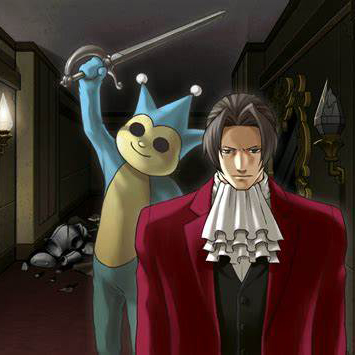Taking a walk every day helps improve the mood on my dopamine deprived brain.
Sometimes the person you really need to trick with psychology is yourself.
When in an argument, wait for the other person to stop talking then maintain eye contact and say nothing. They’ll feel the need to fill the void and keep talking after a few seconds, but this move throws them off balance and helps calm them down. Also works great with angry customers at retail jobs.
Also, when you suspect someone is lying to you. After the silence, they’ll often try to cover up the lie because they suspect you’ve figured them out.
Something niche to my field (custom furniture and woodworking) is that RAISING prices can increase sales. Wealthy clientele want both a piece that is quality, but also something “worthy” of gracing their home.
A mentor of mine had beautiful, handmade pieces for 600$. He was still in his “starving artist” phase and kept slashing prices to make some money back. He had lunch with a friend who was a painter. he discussed the amount of time (30 hours) and materials that went into these pieces and they weren’t selling for even 600$. She immediately told him he was insane and to jack up prices. He told all the stores he was showcasing in to raise the prices from 600$ to 3000$. He sold ALL 10 of them in 3 months.
Pricing is a careful balance of charging what is fair, and what the client expects to pay. If you are building a dining table for a client that has $500k worth of art and paintings covering the walls, he is expecting to pay in excess of $50,000. If you quote him $10,000, hes gonna get cold feet and go to someone else charging more.
Same phenomenon in this video. Banksy selling pieces for 60$ on the street and barely sells any. His pieces usually sell for $20k
People are HIGHLY class oriented and kind of stupid. The price is not the piece but what it says. They want a piece that says “I’m rich as fuck”.
answering questions in an accuate way that still leaves the asker with no real additional information.
in the same class: when interviewing about awkward topics, don’t immediately ask then next question. People tend to keep expanding their answer to fill an awkward pause. often saying more than they initially intended to
mine was a joke response actually suggesting im using the trick on the OP.
…
Law school?
Not a specific one, but Cialdini’s book the principles of persuasion, is probably the best book on psychology, and it’s centered on a short list of these “tricks” that cause an automatic “click-whirr” response in humans.
If you don’t want to answer the question, say “I don’t know, what about you?” and they’ll start talking about themselves, and you won’t be in the spotlight anymore.
Which kind of “best” is your “best”?
Upvoting posts that really aren’t that great.
Thanks. …hey, wait a minute.
People just want to be accepted and loved. Use this knowledge to get almost anyone to do what you want.
Observe their body language. Do they cross their arms a lot? How much eye contact do they make? Do they shift around when talking? Do their eyes dart around the room?
All these are clues about their personality and disposition and you can tailor your communication to them depending on how receptive they are. Do they laugh easily? What makes them laugh? Do they talk a lot? Do they talk about themselves?
Finding out to what degree of extrovert/introvert they are can go a long way into successfully manipulating anyone around you to do what you want.
It’s how I’ve made friends and how I’ve dated women with variable rates of success.
Another fun trick I learned in sales is that if you’re trying to get someone to purchase something, instead of having them focus on whether or not they should get something, change their question to something else.
For example, I used to sell phones. Instead of having people try to figure out if they want the newest Samsung or not, I would take the phone in two different colors and ask if they liked it in blue or black instead. Putting it in their hands let’s them imagine having the phone already and the question changes from should I purchase this phone to what color do I want?
I’m quite sure this can translate to other questions and decisions people ask themselves
This same trick was actually a plot device in That 70s Show (S1E11). Red learns to use it, and immediately starts making sales.
Did this in computer sales. Within a few sentences I would know that you would be buying one of three computers off my shelf.
Oh I just need something for word and internet.
Well let’s look at <expensive>, <cheap>, and <the one you should obviously buy>. There are 40 computers on this floor, but you now have to pick from the three I chose for you. Out of those three, there is one right answer.
Now lucky for them I was trying to steer them to the best computer for them, because I was not on commission and didn’t care about sales numbers, but this is a frequent sales tactic. Next time you’re on a car lot, try to see if you’re shown more than 3 cars out of the hundreds on the lot.
Suspiciously similar to a trick parents use on their children. “Do you want to eat the peas first or the carrots first?” Gives them the illusion that they made a choice about what to eat.
Yea. It’s simple when you change the question from “do you want to buy X?” To making the assumption that they already will buy it and now the only question is “what color will you be buying?”
This is sometimes known as thinking past the sale, and works exactly for the reasons you said. A similar trick is to ask about the accessories they want for the phone they haven’t yet decided to buy.
Allowing yourself to be wrong. Especially as a male.
Instead of trying to figure out a way to still kind of be correct, you just objectively reconsider the facts.
It made me a better adult. I prefixed a lot of my statements with “I think” or “I believe” to emphasis the possibility for me to be wrong. And I’m more inclined to ask questions. (Which sadly gets a lot of people riled up because they have a hard time believing I’m not doing it sarcastically.)
Is bothers mehow intelligence is too often percieved as the opposite.
Try using “to the best of my knowledge”, I find it is indicating that your knowledge is not complete.
But it also indicates you have thought of the situation.
This has been a lifelong habit for me and something I respect and appreciate and think virtuous, but I’m starting to think I should train myself out of it. “I think”, or “to the best of my knowledge” frequently seems to broadcast “I’m just guessing at random without thought” or with some people it seems to convey “I’m wrong about…”. It also very often seems to encode “it’s best not to listen to the remaining words of this sentence in case my wrongness is contagious”.
As frustrated as I sound by this, I kind of get it I suppose. I thought I was indicating humility and a willingness to change the opinions or ideas I express if the conversation partner has reason to challenge them, however it seems in many cases it just indicates a lack of confidence in my statements. They perhaps might argue that they never thought I was arrogant or lacking in humility to begin with and of course I could be wrong, everyone could so specifically bringing it up or alluding to it unnecessarily like that just suggests you’re trying to mask that you have no idea what you’re talking about. I suppose one might also that the willingness to change your opinion in light of a challenge to it is supposed to be a given so there’s no point trying to show it either since if you weren’t willing to do so that would become apparent anyway. I don’t know if anyone really thinks any of this, but there’s probably something like that operating subconsciously.
Good point, but it doesn’t have a natural sounding translation in my language, although I do use “as far as I know”.
The power of “yes, and …”
Basically when you are being accused of something, or need to shift how someone is perceiving you, instead of saying “yes, but …” You should try 'yes, and…"
Not only does it take the attention away from the negative, but it’s helping in building up new ideas.
Lawyers hate this one trick.
Improv artists love this one trick
A good retail one: don’t say “sorry for your wait.” Say “thank you for waiting” or “thank you for being so patient”.
Something to do with… it makes people feel good about themselves if they think they’ve done something for you, which in turn makes them more likely to keep being patient.
This works with signs, too. “Keep off the grass” is the least effective, followed by “please keep off the grass”, with “thank you for keeping off the grass” being the most effective.
I’m pretty sure this is more likely to make me walk across the grass though - it feels like they’re assuming what I’m doing, which feels offensive enough for me to make sure they’re wrong about it.
Yup. “Thank you for keeping off the grass” is presumptuous. It presumes that I have kept off the grass and/or will keep off the grass. And that kinda makes me want to stomp all over the grass.
Who’s being presumptuous here? The sign isn’t for you. It’s for people not on the grass.
Fair enough!

The lunatic is on the grass
I might be in the minority, but it is painfully obvious and pisses me off when companies do this. I’d much rather get an apology than a comment on my own emotional regulation while taking zero accountability. They’re basically saying it’s my fault for being annoyed.
I don’t think a retail manager would appreciate, “Thank you for remaining calm as your car took unexpected damage” over “I’m sorry I hit your car,” so why do they think I’d prefer the former for them making me wait?
I often don’t like it when customer service people say this to me if I have been waiting to resolve an issue that is the company’s fault, because my waiting is barely a choice; the company screwed up and now I am ‘forced’ to spend time getting it resolved.
Only apologize or thank me when it’s personal and sincere. (The size of the business matters a lot in if the apologies or thanks feel genuine.)
So similar thing I learned in sales. I avoid using the word “help” because if you ask something like “is there anything I can help you with”? The word “help” subconsciously makes them feel like you are implying they are weak, vulnerable, and need assistance. Where as if you ask them “is there anything I can do for you”? The word “do” has a more positive connotation and implies that you are offering a service or a gift, which more people are likely to agree to.
Someone told this to workers at a cafe I go to occasionally. They don’t usually have a particularly long wait which makes it seem insincere and a little ridiculous.
If you’re walking towards someone on the street and you want to avoid the whole “I’m going left you’re going right” dance - DO NOT make eye contact with them and glance toward the way you intend to go. They will automatically go the other way and you won’t bump into anyone ever again
Now playing The Verve - Bitter Sweet Symphony
this also works for navigating large crowds! you look slightly down and the direction you want to go and watch entire crowds part for you. some people will be oblivious and you may have to walk around them, but for the most part, people being able to subconsciously see where you want to go will make them move out of that way for you.
Typically people of driving age move to the side of the road they drive on, ( in that country) in a pedestrian situation.
Where it falls down is tourists in your city when e.g. you are from US and they are from UK etc.
The soctatic method. It forces people to actually think about their position in an argument
I don’t like the Socratic method as it is employed in classrooms. I think the method of questioning is fine, and dissecting a subject can be fun with the right group and foreknowledge, but most instructors absolutely suck at making sure all students are up to speed with whatever is being discussed.
I don’t see its value as a teaching tool without a strong enough instructor to prepare the students for its use and to guide the discussions in a productive manner.
Every professor I’ve ever had who used this method basically wasted class time with fill in the blank response questions. These are not higher order thinking discussions and do nothing to actually broaden understanding of whichever subject is being discussed. It seems like a cop out for the professor to me, at least how I’ve seen it used in multiple major universities.
I’ve had better Socratic discussions while high as fuck with my buddies after class than when we were actually in the lecture hall.
Do you think maybe some of your teachers were still developing their Socratic method skills?
Lol no. These guys were tenured professors doing the same shit for years. It’s a systemic issue where they rely on a definition of the “Socratic method” that is completely divorced from the original and functional tool. It’s a buzz word they’ve been misinterpreting for over a century.
Seriously, lol. Just lecture if you’re gonna lecture. I hate playing hide the ball with my own students because it’s just a waste of time for everyone involved.
The Socratic method is used extensively in medical training to the point that I think most doctors wouldn’t think of it as the Socratic method but rather just as the way you speak to students and trainees.
I can’t imagine how it could work in a lecture hall, it’s best used one on one or at most small groups.
Absolutely. Small group is a must. I think the variations with seminars (always around 20 because universities want to maximize their profits) and lecture halls are terrible.
I see it working with 10ish people at the absolute max.

















